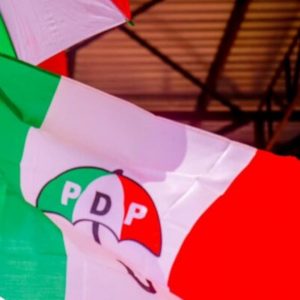Africa is fast becoming a dumping ground for cheap, often toxic petroleum products — many of which are blended to substandard levels that would never be permitted in Europe or North America. This alarming concern was raised by the President/Chief Executive of Dangote Industries Limited, Aliko Dangote, at the ongoing West African Refined Fuel Conference in Abuja. The event is organised by the Nigerian Midstream and Downstream Petroleum Regulatory Authority (NMDPRA) in collaboration with S&P Global Commodity Insights.
Dangote revealed that due to Africa’s limited domestic refining capacity, the continent imports over 120 million tonnes of refined petroleum products annually, costing around $90 billion.
“Despite producing about seven million barrels of crude oil daily, Africa only refines around 40% of the 4.3 million barrels of refined products it consumes each day. In contrast, Europe and Asia refine over 95% of what they consume,” he said.

According to him, this over-dependence on imports leads to a significant economic loss and job exportation.
“So, while we produce plenty of crude, we still import over 120 million tonnes of refined petroleum products each year — effectively exporting jobs and importing poverty into our continent. That’s a $90 billion market opportunity being captured by regions with surplus refining capacity. Only about 15% of African countries have a GDP greater than $90 billion. We are effectively handing over an entire continent’s economic potential to others—year after year,” he lamented.
Dangote acknowledged the Nigerian National Petroleum Company Limited (NNPC) for supplying some cargoes of Nigerian crude to the Dangote Refinery since production began. Still, he noted that the company buys 9–10 million barrels of crude monthly from the United States and other countries.
While affirming his belief in free markets and global trade, Dangote insisted that such trade must be based on economic efficiency and quality standards.
“It defies logic and economic sense for Africa to be exporting raw crude only to re-import refined products — products we are more than capable of producing ourselves, closer to both source and consumption,” he said.
Building Africa’s largest refinery: A herculean task
Reflecting on the scale and complexity of constructing the world’s largest single-train refinery, Dangote said the project was one of the most capital-intensive and logistically challenging undertakings in Africa.
The refinery project involved:Clearing 2,735 hectares of land — seven times the size of Victoria Island, 70% of which was swamp.Pumping 65 million cubic metres of sand to stabilise the site.Installing over 250,000 foundation piles and millions of metres of piping, cabling, and wiring.“At peak, we had over 67,000 people on-site — 50,000 of them Nigerians — coordinating around the clock across hundreds of disciplines and nationalities,” he noted.He said the COVID-19 pandemic delayed the project by two years, increasing its complexity and risk.
The refinery also necessitated the construction of a dedicated seaport, as Nigerian ports couldn’t handle the volume and size of equipment. The project involved:
- Over 2,500 pieces of heavy equipment.
- 330 cranes.
- A dedicated granite quarry with a 10-million-tonne annual capacity.
“In short, we didn’t just build a refinery—we built an entire industrial ecosystem from scratch,” Dangote said.
Commercial headwinds and policy bottlenecks
Despite the technical feat, Dangote noted significant commercial challenges — especially the exchange rate volatility, which moved from ₦156/$ at inception to ₦1,600/$ at the project’s completion.
He decried difficulties in sourcing crude oil at competitive terms within Nigeria.
“Rather than buying crude oil directly from Nigerian producers, we had to negotiate with international traders who had already bought Nigerian crude and were reselling it to us—at hefty premiums,” he said.
He also described how port and regulatory charges contribute significantly to freight costs, sometimes as high as 40% of the total, making it cheaper to import from distant regions like India than ship domestically.
“Refiners in India enjoy lower freight costs than we do in West Africa, even though they buy crude from farther away,” he added.
For instance, customers lifting petroleum products from the Dangote Refinery are required to pay charges at both the loading and discharge points, whereas in Lomé, charges are paid only at discharge — giving foreign ports a competitive edge.
Lack of harmonised standards and dumping of toxic fuel
Dangote further criticised the lack of harmonised fuel standards across African countries, calling it a barrier to regional trade and a boon for international traders.
“The fuel we produce for Nigeria cannot be sold in Cameroon, Ghana, or Togo — even though we all drive the same vehicles. This market fragmentation imposes unnecessary inefficiencies,” he said.
He gave an example of diesel cloud point standards, noting that Nigeria mandates a cloud point of 4°C, while other countries permit 7–12°C — unnecessarily increasing production costs and limiting crude options.
On external threats, Dangote raised concern over increasing fuel dumping in Africa, particularly low-quality products from Russia, often blended under price caps and banned in Europe, but sold cheaply on the continent.
“We are now facing increasing dumping of cheap, often toxic, petroleum products—some of which are blended to substandard levels that would never be allowed in Europe or North America,” he warned.
Call for protection of local refiners
He urged African governments to emulate regions like the United States, Canada, and the European Union, which have adopted protective measures to support domestic refiners.
“We must act fast. Otherwise, our local refining industry will be unable to compete, and we’ll continue surrendering our economic sovereignty,” Dangote concluded.
Stay ahead with the latest updates!
Join The Podium Media on WhatsApp for real-time news alerts, breaking stories, and exclusive content delivered straight to your phone. Don’t miss a headline — subscribe now!
Chat with Us on WhatsApp






